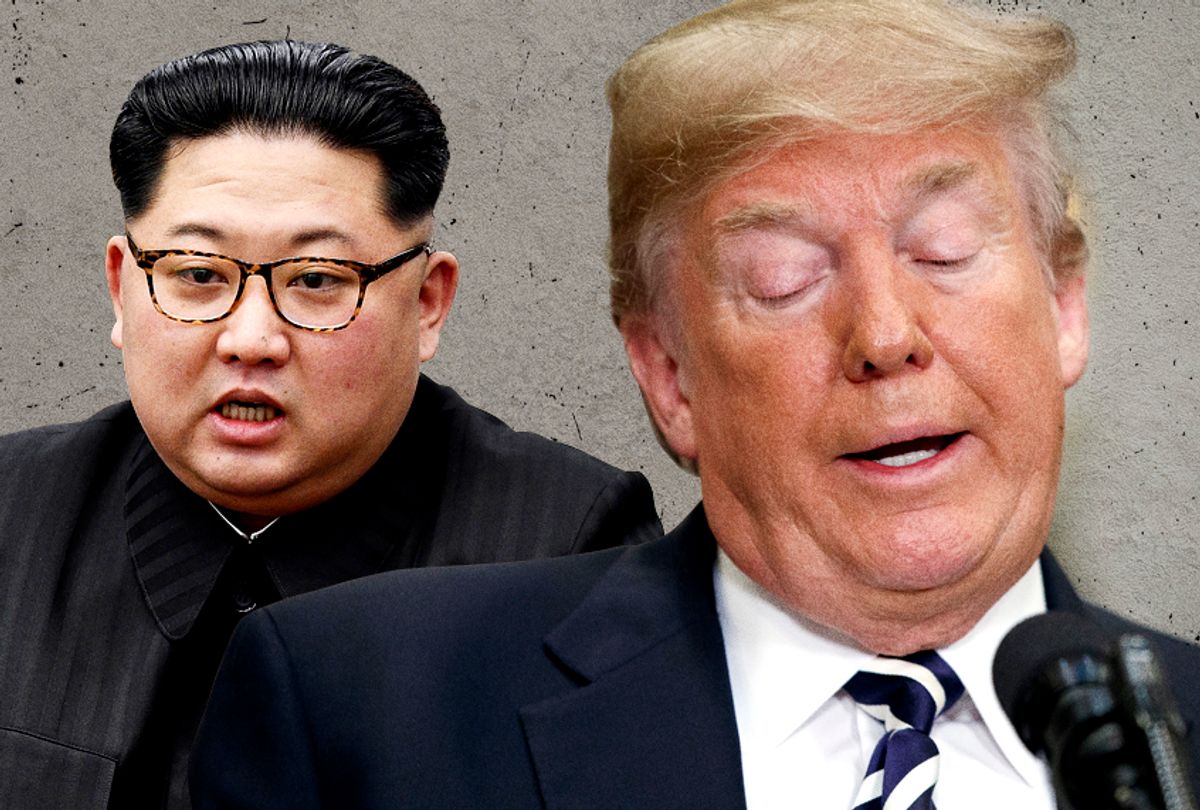As an American citizen, I have little new to say about the Singapore summit because there is so little actual information available. I realize that both Trump and North Korean Leader Kim Jong-Un will use the myriad hand-shaking photos for their own purposes, internationally and domestically, and I would hope, like you, that there is something of substance hidden in their bland 200-word promise of denuclearization.
I also realize that this is about as far as we should take the meaning of this event, that it represents a better effort to start a discussion than more belligerent talk of going to nuclear-equipped war.
But to listen to all the talking heads following the summit, it is difficult to conclude much more than this was pretty much window-dressing that helps the individual cases of two obstinate, petty, impulsive leaders looking to build a long-term popular endorsement for remaining in power.
The final, short declaration, which echoes the vague language of an April joint statement by Kim and South Korean President Moon Jae-in, does not commit North Korea to a firm, verifiable process for giving up its nuclear weapons or the associated research-and-development effort.
To listen to the president, who will talk about this summit endlessly, this non-commit meeting was as much a win for America as it obviously was for North Korea, which gained international stature as a reward for building up nuclear weapons capabilities. Of course, the president offered to abandon joint military exercises (for how long? With no trigger for re-start?) in return for the vague promise to think about long-term reduction and elimination of nuclear weapons.
While I may not be able to explain more about what actually has been promised, I can note that the yawning gap between speech and action in all of this seems very jarring:
- Last week, Trump presented himself as the great negotiator who would accept nothing less than instant destruction of North Korean weaponry. That doesn’t seem to be how things have worked out.
- Kim has said his price was guaranteed security for North Korea, something that Trump has agreed on, promising a new approach to security which was not spelled out. Instead, there was loose talk about hotels and resorts to be built on beautiful North Korean beaches. Hmmm. Perhaps Trump should have offered to turn North Korea into an American territory like Puerto Rico. We all know how that has worked out in times of stress.
- The New York Times reported that South Koreans were caught completely by surprise by the abandonment of joint military exercises. Again, to my ear, my question is how seriously to take a commitment that has not been shared with the closest ally in the region. For that matter, our own troops only were finding out about the announcement through news reports.
- For years, Trump has called out the Iran nuclear weapons deal as the worst deal ever negotiated. The Iran deal came after international parties hammered out hundreds of pages of verifiable steps toward assuring a halt to weapons development. In this Korea summit, we have nothing beyond the same kind of bland promise we have seen before.
- What must follow is detailed talk led on the U.S. side by Secretary of State Mike Pompeo (the North Koreans did not name their negotiator) that could last for years. How is this different from the previous attempts to deal with North Korea that Trump has attacked as weak and unenforceable?
- Just for nothing, commentators on Fox News found reason to beat up on yet more skeptical commentators for MSNBC, a reminder that politics is never far from any of these events.
- The strong economic sanctions against North Korea remain in place. The president argues that he gave up nothing more than his time. It might be noted that neither did Kim.
- Whatever the talk of nuclear weapons, there was no public mention of chemical and biological weapons that Kim has hoarded, and no discussion of the human rights abuses by Kim’s regime.
- There is an assumption running through all these summit conversations that there will be an official end to the Korean Conflict after 70 years. North Korea did agree to return remains of many of the 5,000 American missing-in-action soldiers from that conflict.
- Whatever lies ahead also seemingly requires a sign-off from Congress, bringing the difficulties of international dealings back to domestic politics. Congress must give the president leeway, while outlining the kind of verification procedures that will allow for a durable settlement. Given this Congress, good luck with that. By example, this Congress doesn’t think much of sneering at Canada and European allies.
There are no timetables, targets or milestones, you know, the kind of things that make these efforts real. Instead, there are pictures of hand-shakes.
I have no interest in judging whether this was a successful start or an overhyped photo op, but it would make me feel a whole lot better if this effort was underwritten by documents that recognize and wrestle with the actual details of denuclearization.


Shares